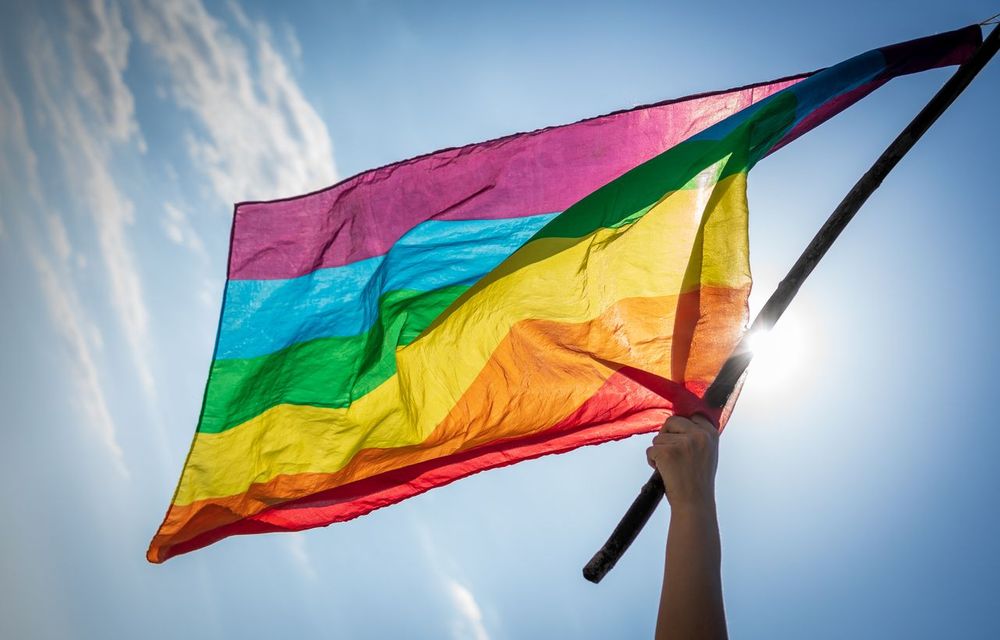
The workplace should be a safe space for everyone, regardless of gender, religion, and sexual orientation. Unfortunately, not everyone welcomes their coworkers with open arms. Although there are laws in place to prevent discrimination against the LGBTQ population, not everyone is supportive. Find out how you can be an LGBTQ ally and make your coworkers feel safe and welcomed.
For years, discrimination against LGBTQ individuals has been illegal. Unfortunately, the laws don't stop discrimination or hate from taking place. In fact, according to one study, close to 50% of all LGBTQ workers remain in the closet. They don't feel comfortable enough to be themselves at work. While some of these closeted individuals fear how their coworkers will react, others worry that they will lose their jobs.
Whether or not you own a business, you can make others feel more comfortable at work. If you want to make your workplace more inclusive, you can follow a few easy tips. It may only take one small gesture to make a difference.
One of the best ways to become an ally is to learn more about the LGBTQ community and its history. What current laws have been passed that impact LGBTQ individuals? If you haven't ever paid attention to that, start familiarizing yourself with local and federal legislation.
You should also watch the news. If you know what challenges are facing the community, you can help make your coworkers or employees feel at ease. Even if you can't find any stories on your local news station, check our articles from GLAAD or the HRC.
These stories may also help you empathize. If you haven't directly experienced something, it's difficult to connect with the individual. By learning about the discrimination and stereotypes LGBTQ individuals face, you can be more of a friend to them.
If you work for a progressive company, they might have an LGBTQ Resource group. The group dedicates itself to promoting inclusion and educating others on how to be an ally. You can ask your HR manager if there is an active group. Then, you can join and actively learn and support your coworkers. If there is no group, you might consider creating your own. It's a project that can improve lives and add to your resume.
There may also be industry-specific organizations you can join. For instance, the NGPA is an association that promotes the equal treatment of gay pilots. Do some research and find out which organizations are in your industry. Once you find a good fit, take an active role by volunteering, donating, or joining.
No matter how open-minded you try to be, you have some biases. If you don't know any LGBTQ individuals, you probably have many stereotypes and questions. It's essential to address your own bias and question yourself.
To start off, take a quiz. Harvard put out an Implicit Association Test to determine how biased an individual is with trans people. After you identify your bias, you can educate yourself until you overcome it. For instance, you might read books about the struggles of trans youth or make friends with someone who is Trans.
Don't be afraid to put yourself out there. If your community has a Pride event, attend it. Or, go to the local gay bar. You will probably feel uncomfortable at first, but eventually, you can overcome your bias.
It's never a good idea to assume someone's gender. Although you might like to refer to people as "man," "ma'am," or "lady," resist the temptation. You can avoid offending someone by using neutral language. For example, you can say, "Hi, everyone."
If a coworker comes out as trans or expresses a desire to use certain pronouns, then make an effort to comply. Some people prefer the "they" pronouns. Listen to what your coworkers want and respect their wishes. If you hear someone else refer to them as the wrong pronoun, speak up.
It's not uncommon for people to make jokes about gays or lesbians. While you're at work, don't allow others to be hateful. If you hear someone make a joke, speak up about it. Tell the person who makes the joke that you're not comfortable with it. Then, wait and see if the behavior continues. If it does, you might need to ask HR to intervene.
You can actively seek change in the workplace. Does your company have inclusive policies? If not, talk to your employer. Ask if they can include certain inclusive policies or ask them to create a more positive environment. In the end, your efforts could make the workplace better for everyone.
This is one of the easiest ways to be an ally. If any of your colleagues identify as LGBTQ, you can make an effort to get to know them. Just don't be offensive or awkward, and respect their boundaries. It's acceptable to tell them that you're trying to be an ally or to explain that you're still learning and looking for information.
Most people are happy to explain more about their sexual orientation, as long as you're genuine in your interest. When you approach someone, be friendly and warm. Don't be patronizing or biased, and you might end up making a good friend.
There's only so much you can do to make your workplace better. If you have an employer who's against inclusion, you won't ever improve the situation. In this case, the best thing to do is to find an employer who shares your values.
The employer might not currently discriminate against you. But do you truly want to work for someone who doesn't treat everyone equally? There's nothing worse than a toxic workplace, so you should look for an exit strategy. If LGBTQ inclusion is important to you, find a company that proudly waves the rainbow flag.
Lorem Ipsum is simply dummy text of the printing and typesetting industry. Lorem Ipsum has been.
